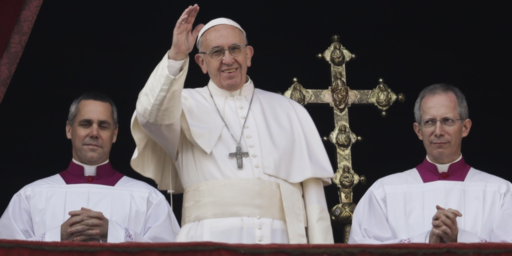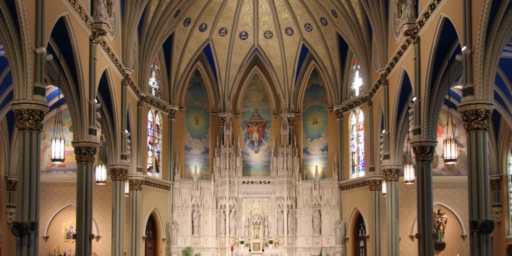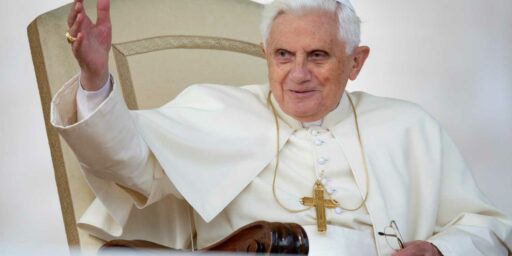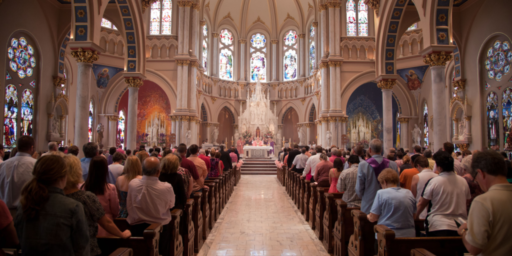How the Pope ‘Defeated Communism’
Anne Applebaum offers some personal insights into the late Pope John Paul II’s role in “defeating Communism.”
How the Pope ‘Defeated Communism’
When I lived in Poland in the late 1980s, I was told that if I wanted to know what was going on, I’d have to go every week to a particular Warsaw church and pick up a copy of the city’s weekly underground newspaper. Equally, if I wanted to see an exhibition of paintings that were not the work of the regime’s artists, or a play that was not approved by the regime’s censors, I could go to an exhibition or a performance in a church basement. The priests didn’t write the newspapers, or paint the paintings, or act in the plays — none of which were necessarily religious — but they made their space and resources available for the people who did. And in helping to create what we now call “civil society,” these priests were following the example of the pope who, as a young man in Nazi-occupied Poland, secretly studied for the priesthood and also founded an underground theater.
[…]
I don’t mean here to play down the pope’s spirituality. But it so happens that John Paul’s particular way of expressing his faith — publicly, openly, and with many cultural and historical references — was explosive in countries whose regimes tried to control both culture and history, along with everything else.
Finally, this pope also made an impact thanks to his unusual ability — derived from charisma and celebrity as well as faith — to get people out on the streets. As Natan Sharansky and others have written, communist regimes achieved their greatest successes when they were able to atomize people, to keep them apart and keep them afraid. But when the pope first visited Poland in 1979, he was greeted not by a handful of little old ladies, as the country’s leaders predicted, but by millions of people of all ages. My husband, 16 years old at the time, remembers climbing a tree on the outskirts of an airfield near Gniezno where the pope was saying Mass and seeing an endless crowd, “three kilometers in every direction.” The regime — its leaders, its police — were nowhere visible: “There were so many of us, and so few of them.” That was also the trip in which the pope kept repeating, “Don’t be afraid.”
It wasn’t a coincidence that Poles found the courage, a year later, to organize Solidarity, the first mass anticommunist political movement. It wasn’t a coincidence that “civil society” began to organize itself in other communist countries as well: If it could happen in Poland, it could happen in Hungary or East Germany. Nor was it necessary, in 1989, for the pope to do deals with Gorbachev, since in 1979 he had already demonstrated the hollowness of the Soviet Union’s claims to moral superiority. He didn’t need to conduct secret negotiations, because he’d already shown that the most important things could be said in public. He didn’t need to man the barricades, in other words, because he had already shown people that they could walk right through them.
The pope’s role in the collapse of the Soviet Union was less direct that Ronald Reagan’s or Harry Truman’s or Lech Walesa’s. Still, helping set the moral stage is not an inconsequential contribution.
See Donald Sensing‘s thoughts on this, too.
Related Posts:
The Pope and Communism (Leopold Stotch)
The Pope and Communism, Part II (Leopold Stotch)
Cold War Strategist George F. Kennan Dies at 101





So I guess this means you’ll be firing leopold? 😉